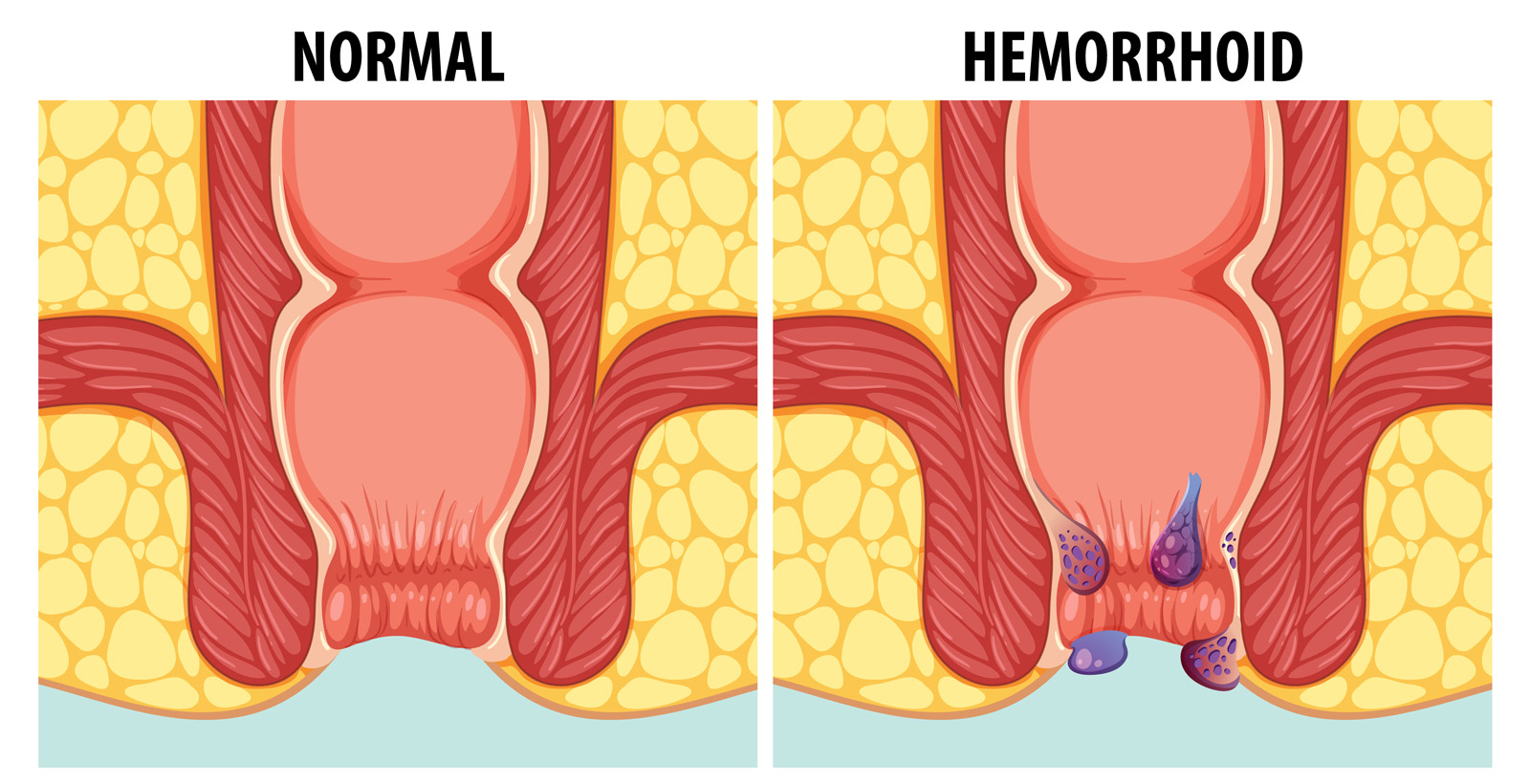Hemorrhoids, a condition often veiled in discomfort and hesitation, affect millions worldwide. While alleviating symptoms is common, understanding the mechanics behind hemorrhoids and treating their root cause of hemorrhoids are essential for long-term relief.
In this guide, we unravel the intricate anatomy and mechanics contributing to hemorrhoids, shedding light on why addressing their underlying causes is paramount.
Cause Of Hemorrhoids: Exploring the Mechanics
- Pressure on Anal Veins: Hemorrhoids originate from increased pressure on the veins in the anal canal. During bowel movements, excessive straining, often induced by constipation or hard stools, exerts significant force on these veins. Over time, this pressure weakens the vein walls, leading to swelling and inflammation, characteristic of hemorrhoids.
- Disturbed Blood Flow: The intricate network of blood vessels surrounding the anus is susceptible to disruptions in blood flow. Prolonged sitting, especially on hard surfaces, impedes circulation in the pelvic region, exacerbating the risk of hemorrhoid development. Poor circulation compromises vein integrity, fostering the conditions conducive to hemorrhoids.
- Anatomical Vulnerabilities: The anatomy of the rectum and anus plays a pivotal role in hemorrhoid formation. Straining during bowel movements stretches the supportive tissues in the anal canal, compromising their integrity. This strain weakens the surrounding muscles and ligaments, predisposing individuals to hemorrhoids, particularly under repetitive or prolonged stress.
- Pregnancy-Induced Changes: Pregnancy introduces unique physiological changes that heighten susceptibility to hemorrhoids. Increased abdominal pressure from the growing uterus compresses pelvic veins, impeding venous return from the lower body. Hormonal fluctuations and constipation further exacerbate the strain on the anal veins, fostering hemorrhoid development during pregnancy and childbirth.
- Lifestyle Factors: Sedentary lifestyles, characterized by prolonged sitting or standing, exacerbate the risk of hemorrhoids. Inactivity diminishes muscle tone in the pelvic floor, compromising venous drainage and exacerbating the effects of gravity on anal veins. Additionally, dietary factors, such as low fiber intake and dehydration, contribute to constipation, amplifying the strain on anal tissues.

Addressing the Root Cause Of Hemorrhoids
Understanding the underlying mechanisms driving hemorrhoid development is pivotal for effective management and prevention.
- Dietary Adjustments: Increasing dietary fiber intake promotes softer stools, easing bowel movements and reducing strain on anal tissues. Adequate hydration complements fiber intake, maintaining stool consistency and facilitating smooth passage through the digestive tract.
- Lifestyle Modifications: Incorporating regular physical activity improves circulation and supports healthy bowel function. Taking breaks from prolonged sitting or standing alleviates pressure on pelvic veins, mitigating the risk of hemorrhoids. Additionally, adopting proper toilet habits, such as avoiding straining and responding promptly to bowel urges, promotes optimal bowel health.
- Medical Interventions: In cases where lifestyle modifications alone are insufficient, medical interventions may be warranted. Over-the-counter remedies, such as topical creams and suppositories, provide symptomatic relief. Minimally invasive procedures, like rubber band ligation or sclerotherapy, target hemorrhoidal tissue directly, offering effective, outpatient treatment options.
Understanding the mechanics behind hemorrhoids illuminates the importance of addressing their root causes for effective management. By mitigating pressure on anal veins, optimizing blood flow, and adopting healthy lifestyle habits, individuals can proactively manage hemorrhoids and prevent recurrent flare-ups.
Consulting a healthcare professional for personalized guidance ensures comprehensive management tailored to individual needs, promoting optimal digestive health and well-being.


